‘We have a job not to be silent – and make sure hate speech is not allowed’
Camden hold special event for Holocaust Memorial Day
Friday, 31st January 2025 — By Tom Foot
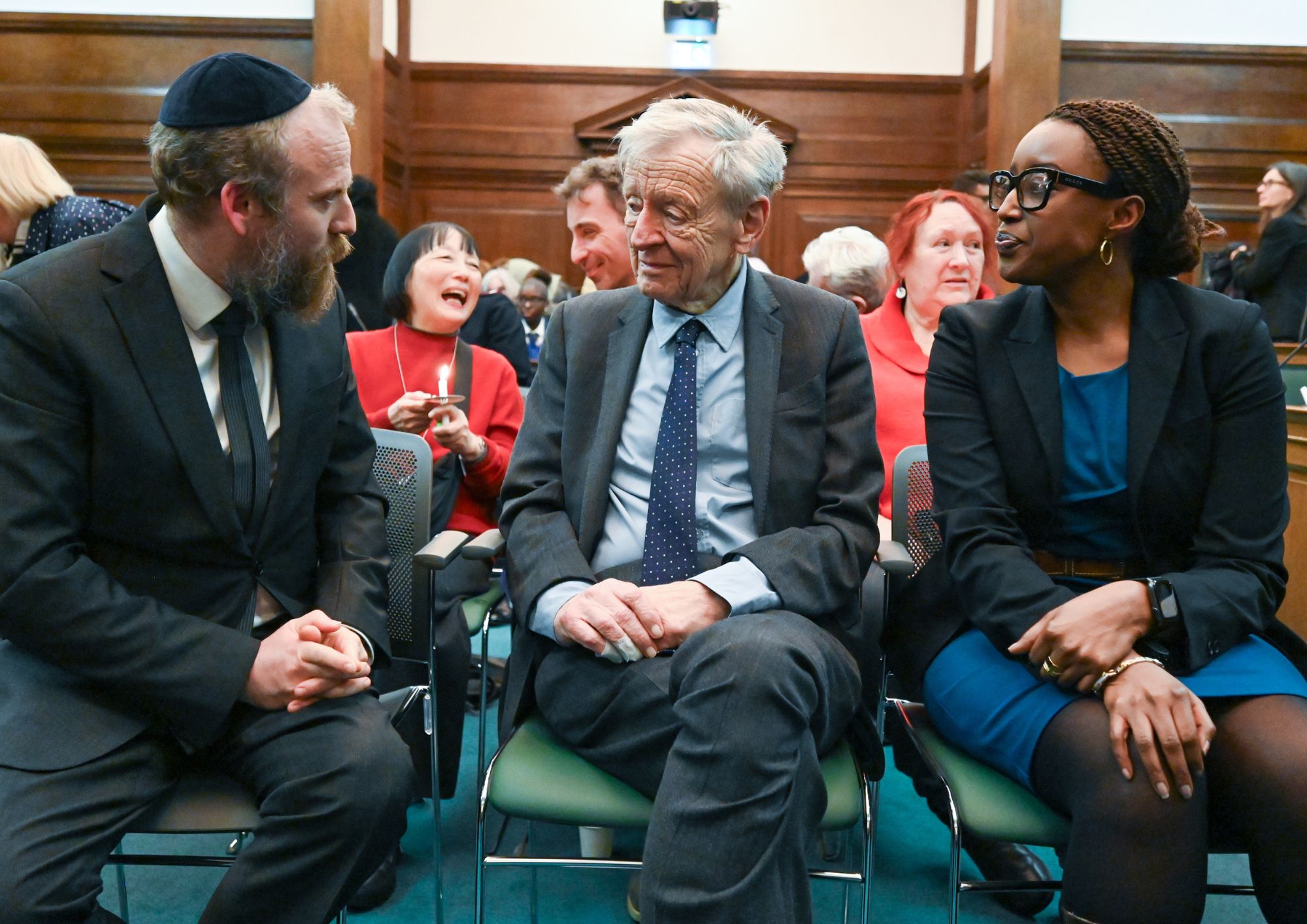
Rabbi Eli Levin from South Hampstead Synagogue, Lord Alf Dubs and Marie-Rose Rurangirwa
CRITICS of refugees in this country should reflect on the experience of Jews who fled the Nazi Holocaust and aim to spread a message of hope not hate, speakers told a moving memorial in the Town Hall.
Candles were lit in memory of victims of genocides – including Cambodia, Rwanda, Bosnia and Darfur – as well as the six million Jews murdered by the Nazis.
Lord Alfred Dubs spoke at the “For a Better Future” event in the main chamber on Tuesday night.
The Labour peer, who sought refuge in this country as a child from Czechoslovakia on the Kindertransport train, said: “We’ve seen, tragically, in recent weeks and months, the hard right gaining a lot of support by being opposed to refugees in this country. And using the anti-refugee argument as a way of getting votes.
“We have had ministers talking about people coming over as invaders. That is very, very shabby. If we are going to deal happily with people fleeing to safety, we need to be as welcoming as possible.
“Human beings will put up with terrible conditions when there is some hope. When there is no hope, there is nothing for them. What we have to do on behalf of all the values the council here has spoken about, on behalf of human decency, we have to give people hope. We need to organise. We need to oppose any hate speech.”
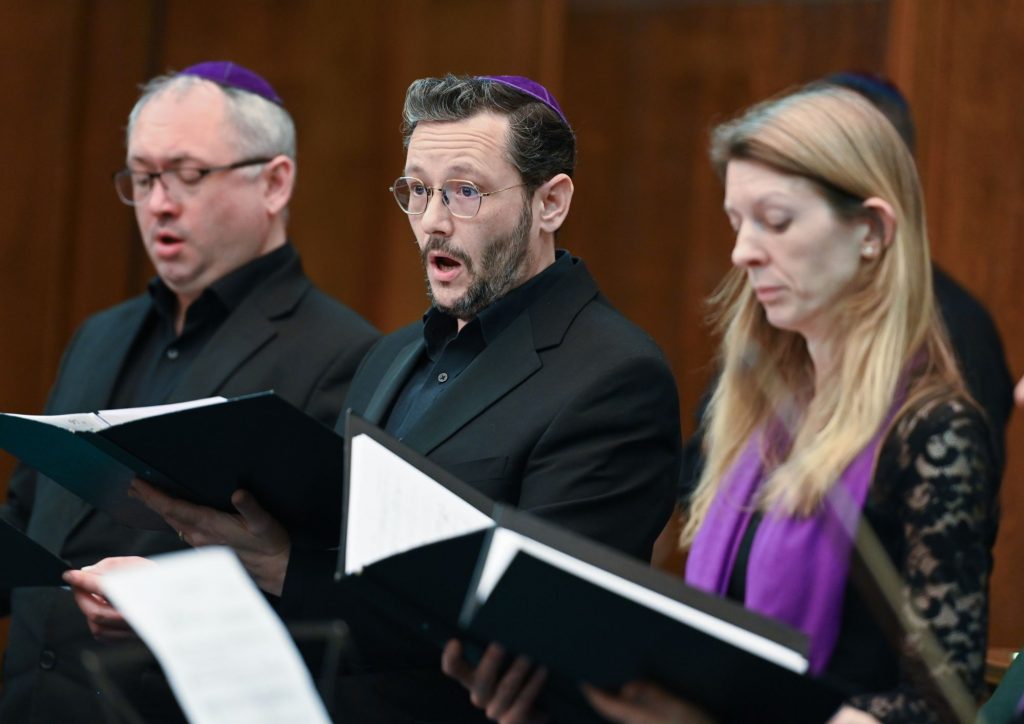
Lord Dubs recalled arriving at Liverpool Street station in 1939, after two days on the Kindertransport train, having left his parents behind in Prague, aged six.
He remembered having to “stick in a picture of Hitler” in his school textbook after the German invasion, and “being aware that something was happening”.
In 2016 it was Lord Dubs’ amendment to the Immigration Act that led to the government committing to offer safe refuge to unaccompanied migrant children.
Lord Dubs added: “The fact is that now Jews are wondering whether their future should be in this country. Who would have thought 80 years after the liberation of Auschwitz that would be possible? We have a job not to be silent. And make sure hate speech is not allowed.”
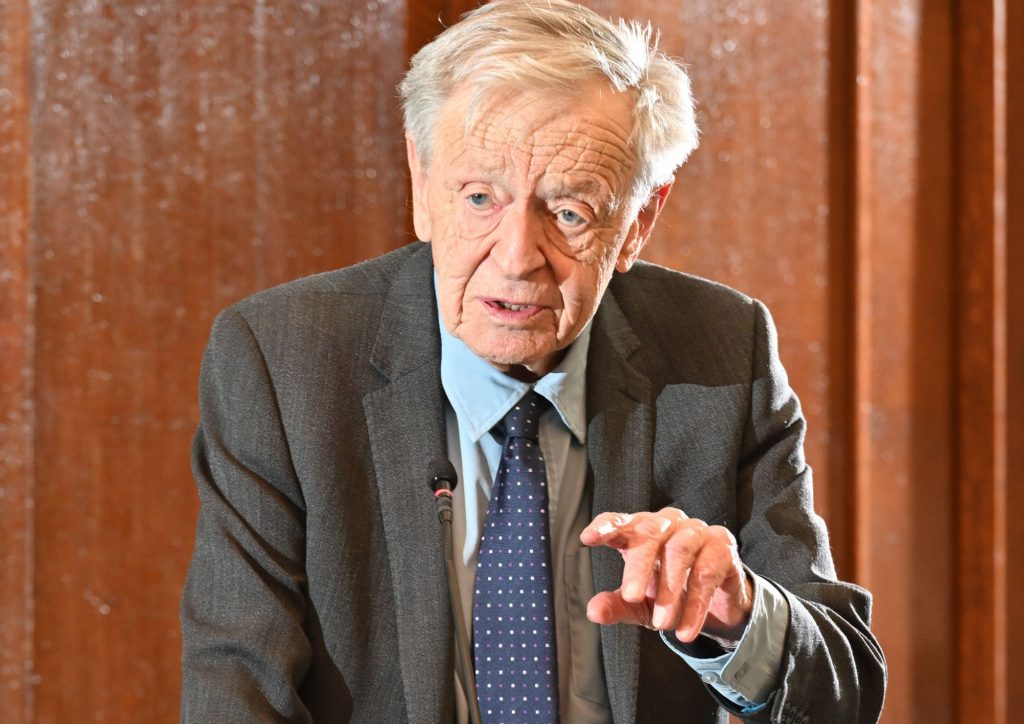
Lord Alf Dubs
In a film created by the Jewish Museum in Camden Town, Auschwitz survivor Leon Greenham described the harrowing conditions of “winds, snow, ice and hardly any food”, adding: “So many didn’t make it because of those facts. But I wanted to live. I wanted to see my wife and child again.”
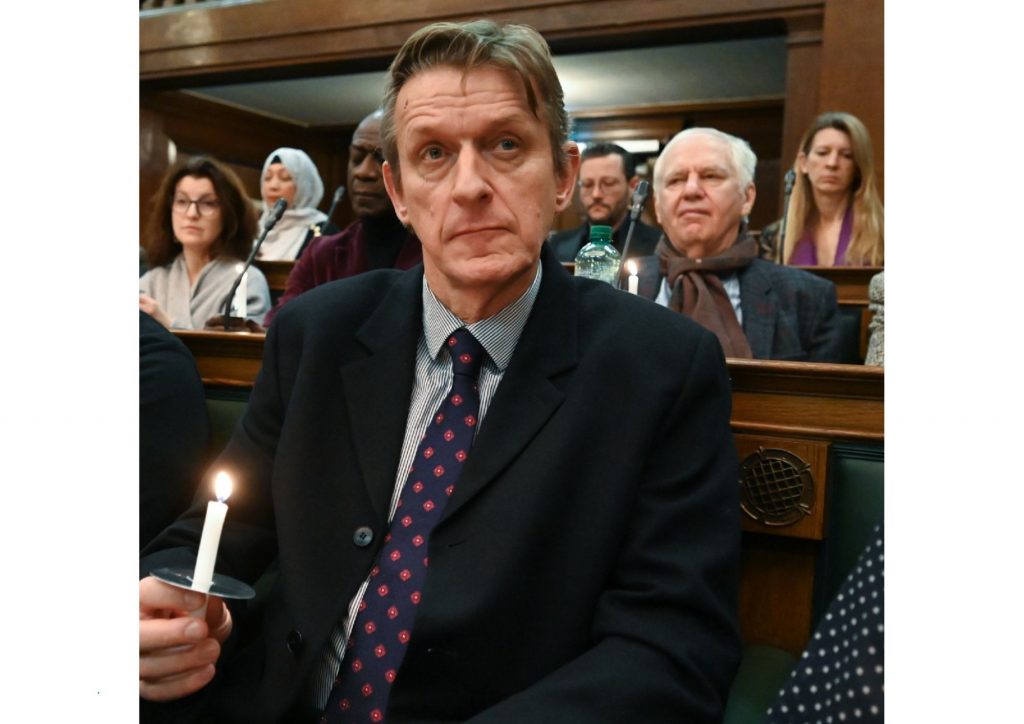
Council leader Councillor Richard Olszewski with a candle
After the war he found that his wife had died in a gas chamber.
Candles were lit at the event – in partnership with the JW3 Centre, Wiener Holocaust Library and the Jewish Museum.
Marie-Rose Rurangirwa, a survivor from Rwanda, said: “I speak at a time when genocide-denying and distortion are on the rise. It is my duty to pass on a legacy to future generations, ensuring that silence is not an option.”
Now working for the Ishami Foundation, she recalled being asked to stand up at school by her teacher, along with other Tutsis in the class.
“Before that I thought we were all the same,” she said. “After that day, life changed. I had to learn who I was and who I wasn’t. This was many years before the genocide took place.”
Over around 100 days in 1994, more than half a million Tutsis were killed by Hutu militias.
Camden’s Interfaith Network, including Interfaith Chairs and religious leaders, were at the event, along with councillors and Youth MPs.
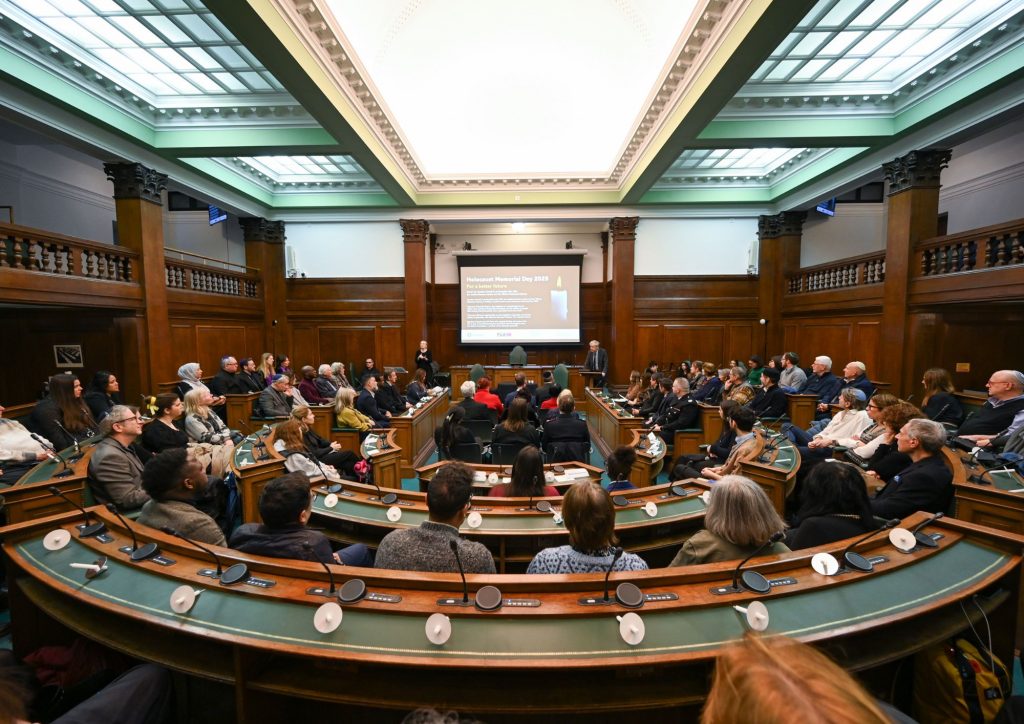
Leader of Camden Councillor Richard Olszewski said his father, despite not being Jewish, was imprisoned in a concentration camp in occupied Poland while his mother was “forced into slave labour as a domestic maid of SS officers”. He added: “Camden will not tolerate hate and division.”
Mayor Samata Khatoon said “we’re proud to come together as diverse communities”.
Traditional songs were performed by the choirs of Belsize Square Synagogue and West London Synagogue.